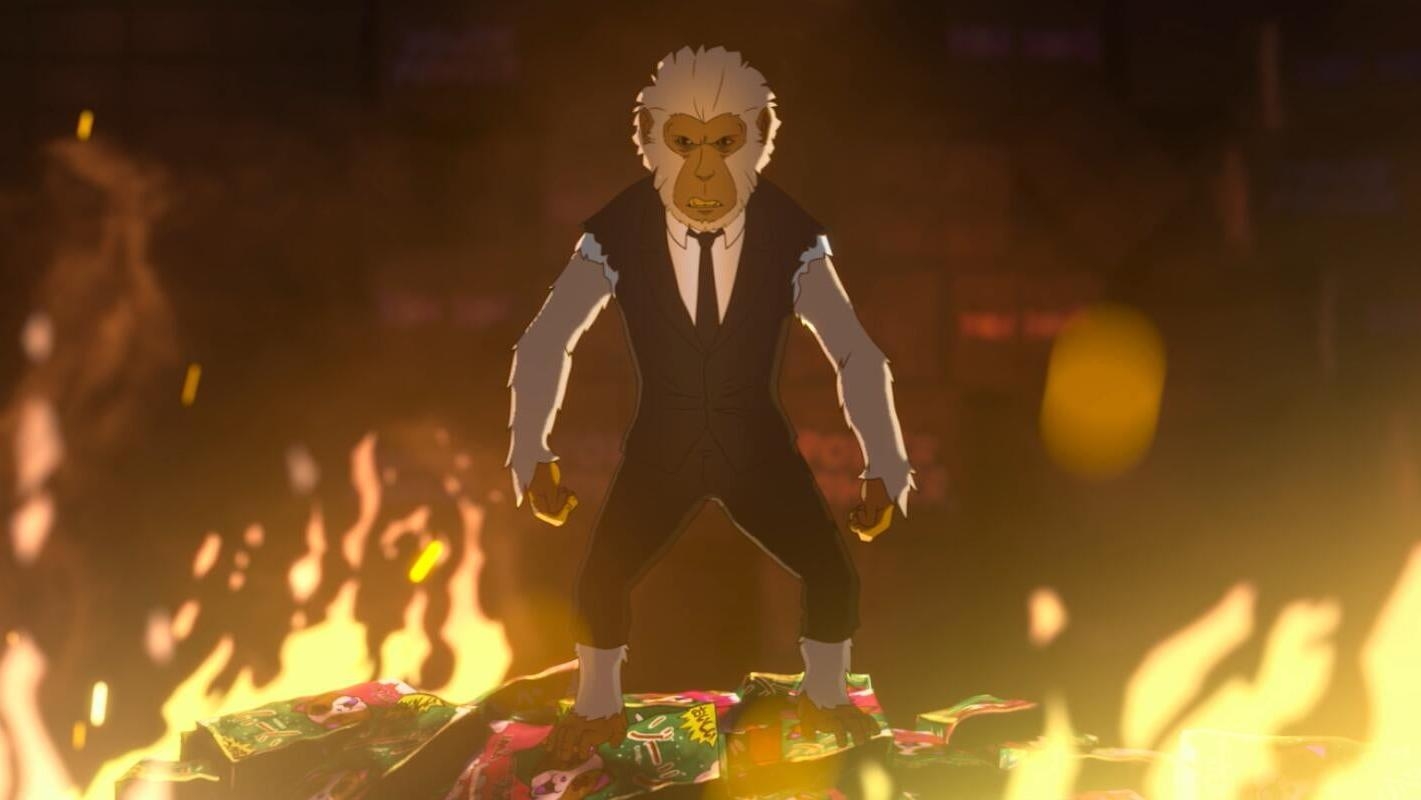Marvel’s Hit-Monkey is a rip-roaring, comedic thrill ride
The Hulu adult animated comedy from Will Speck and Josh Gordon stands with the best of Marvel’s TV series


Hulu’s new animated series Hit-Monkey is a blast, one of the more enjoyable of Marvel’s recent TV shows. Created by Daniel Way and Dalibor Talajić in 2010, Hit-Monkey isn’t a hitman with the proportionate strength of a radioactive monkey, but quite literally a monkey hitman who’s tangled with both Deadpool and Spider-Man.
Despite the absurd premise of a gun-toting monkey dressed like one of the Reservoir Dogs, Hit-Monkey isn’t an absurdist comedy like Marvel’s M.O.D.O.K. It’s a compelling action drama in the Peter David/Joss Whedon mold. Hit-Monkey exists in an absurd world with ghosts and, well, monkeys who can operate rifles, but the story and character beats keep the viewer emotionally invested.
Series creators and showrunners Josh Gordon and Will Speck never allow snark to lessen the stakes. We care about this monkey and his spectral mentor, Bryce (a marvelous Jason Sudeikis), once a hitman himself—a disturbingly personable and well-adjusted one at that. In the comics, Hit-Monkey embarks on a career killing other assassins, but the series takes a Kill Bill turn, with Hit-Monkey pursuing the shadowy figure who set everything in motion, not hesitating to massacre Tokyo’s entire underworld in the process. Bryce’s ghost is now along for the ride as Hit-Monkey’s personal Obi-Wan Kenobi.
The original comic struggled with a main character who can’t speak and a ghost assassin who offered little more than exposition. Sudeikis single-handedly saves Hit-Monkey from that trap. He’s not just a perpetual wisecracking machine; his range of emotions when reacting to Hit-Monkey’s grunts and squeaks (courtesy of Fred Tatasciore) sells their buddy-movie dynamic.
The animation is fluid and stylish yet doesn’t exist solely to serve violent action scenes. There’s the occasional James Bond-style quip after a particularly gruesome death, but human lives aren’t presented as disposable. In fact, Bryce warns Hit-Monkey about how a person (or monkey) changes forever once they’ve held a gun in anger. Humor is a coping mechanism for Bryce, who embraced a life of violence because he believed he had no other options. Now he sees the monkey’s quest as his own, a last shot at redemption.
The references to the larger Marvel Universe range from casually laid Easter eggs (e.g., the Kingpin) to fully wrapped Christmas presents. There’s Yuki, the ghost ninja who can see Bryce, Fat Cobra, and Wolverine villains Ogun and Silver Samurai. This glimpse at Wolverine’s rogues gallery builds enthusiasm for the X-Men’s eventual arrival to the Marvel Cinematic Universe.
The primary antagonist (aside from the mysterious Big Bad) is Daredevil villain Lady Bullseye, who’s simultaneously fearsome yet hilarious. “God, you’re annoying!” she snaps peevishly at someone besting her in a fight—though only temporarily. As an assassin, she’s a fascinating contrast to Bryce. She also mixes business with pleasure, but unfortunately for those she encounters, she takes great pleasure in murder. No one hired her to kill a perky flight attendant or the creepy guy who hits on her at a bar, but her victims still pay the price.
Overall, Hit-Monkey’s villains are better formed with a clearer purpose than in past Marvel series. The Falcon and Winter Soldier didn’t quite stick the landing with its version of Flag Smasher. Lady Bullseye commands the screen and while “in it for the evulz” can seem two-dimensional, here it makes perfect sense. She’s a professional, and she’s not about to let some stupid monkey out-class her.
Sci-fi legend and Twitter phenom George Takei is Hit-Monkey’s best surprise. His performance as Shinji Yokohama is compelling, shocking, and heartbreaking (perhaps in that order). He has great chemistry with Olivia Munn, who plays his niece Akiko, and their scenes together are quietly effective. After Bryce kills his boss, Yokohama is thrust into the political limelight—and he finds it very comfortable. Takei’s famous voice is never distracting (which is sometimes a problem with celebrity casting in animated work). His range is also impressive, as the character shifts from meek to imposing, sometimes in the same scene. The show wouldn’t work as well if Shinji and Akiko were mere plot drivers. The choices they make are understandable and sympathetic, even if the audience might disagree.
Hit-Monkey himself is like an even furrier Wolverine from the comics. Beneath the berserker rage is a gentle soul who can’t escape his outcast state. Just as Wolverine fell in love with Mariko Yashida, Hit-Monkey is drawn to Akiko, who offers the promise of a normal life for the perpetual outsider. A star-crossed simian-human relationship seems revolting on the surface, but it’s sweetly (and thankfully) platonic. Hit-Monkey might think he’s on a quest for vengeance but what he desires most is a family.
The series is highly bingeable while also providing satisfying individual installments. That was a challenge for the Netflix Marvel shows that often felt like one dense text chopped into 50-minute segments. However you choose to watch Hit-Monkey, you’re in for a treat.